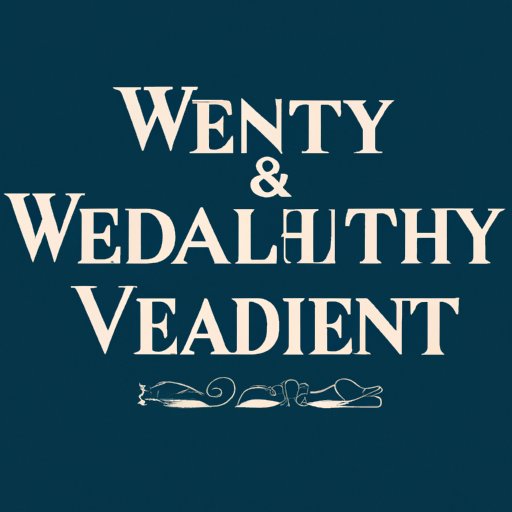
I. Introduction
The Vanderbilt family is one of the wealthiest and most influential families in American history. Their name is synonymous with luxury and prestige. However, their origins were humble and their wealth built from nothing. In this article, we will explore the Vanderbilt family’s rise to wealth, including their historical account, family business, socialite events, wealth management, entrepreneurship, and legacy.
II. Historical Account
The Vanderbilt family’s original roots trace back to Staten Island, where they were farmers and boatmen. It wasn’t until Cornelius Vanderbilt, also known as “Commodore Vanderbilt,” became the family patriarch and made a fortune in the steamboat industry. He later transitioned into the railroad business, where he made his multi-million dollar fortune.
Commodore Vanderbilt’s legacy continued through his son William Henry Vanderbilt, who inherited his father’s vast railroad empire. William continued to expand the Vanderbilt businesses, becoming one of the wealthiest men in the world.
III. Family Business
The Vanderbilt family’s success can be attributed to their strategies in building and maintaining their empire. They believed in keeping their businesses within the family and ensuring that their wealth remained for future generations. Family unity and succession planning were crucial to their business model. They invested heavily in other businesses, such as shipping and finance, to broaden their portfolio and increase their wealth.
IV. Socialite Events
The Vanderbilt family’s wealth and status allowed them to gain entry into high society. They used their extravagant parties and events to make influential connections furthering their business interests. They also supported the arts, funding museums and cultural programs, which helped elevate their social status.
V. Wealth Management
The Vanderbilt family’s wealth management strategies were key to their continued success. They invested in properties, such as mansions and real estate, and had a diverse portfolio of stocks and bonds. Cornelius Vanderbilt even donated $1 million to establish Vanderbilt University. The family was also known for their philanthropic ventures, including donating to hospitals and universities.
VI. Entrepreneurship and Risk-Taking
The Vanderbilt family was known for its entrepreneurial spirit and appetite for risk-taking. They were not afraid to take on businesses that were struggling in the hopes of turning them around for a profit. Cornelius Vanderbilt was a classic example of this; he took on struggling steamboat companies and eventually became the leader of the industry.
VII. Legacy
The Vanderbilt family’s impact on American business, philanthropy, innovation, and society cannot be overstated. They paved the way for future family dynasties and demonstrated what can be achieved with hard work, perseverance, and a solid business strategy. Their legacy includes their contributions to various industries, including transportation, culture, and education.
Today, the Vanderbilt name is still widely recognized, and their impact can be felt across America. The family has left a lasting imprint on American history, and their fortune continues to influence society to this day.
VIII. Conclusion
The Vanderbilt family’s story is one of rags to riches and serves as a true testament to the American dream. Their journey to wealth and success was not an easy one, and they faced many challenges. However, by sticking to their values, maintaining family unity, and utilizing their business strategies, they were able to build an empire that will forever be remembered.
Their story serves as an inspiration for current and future generations, demonstrating what can be achieved with hard work, dedication, and a solid business strategy.




